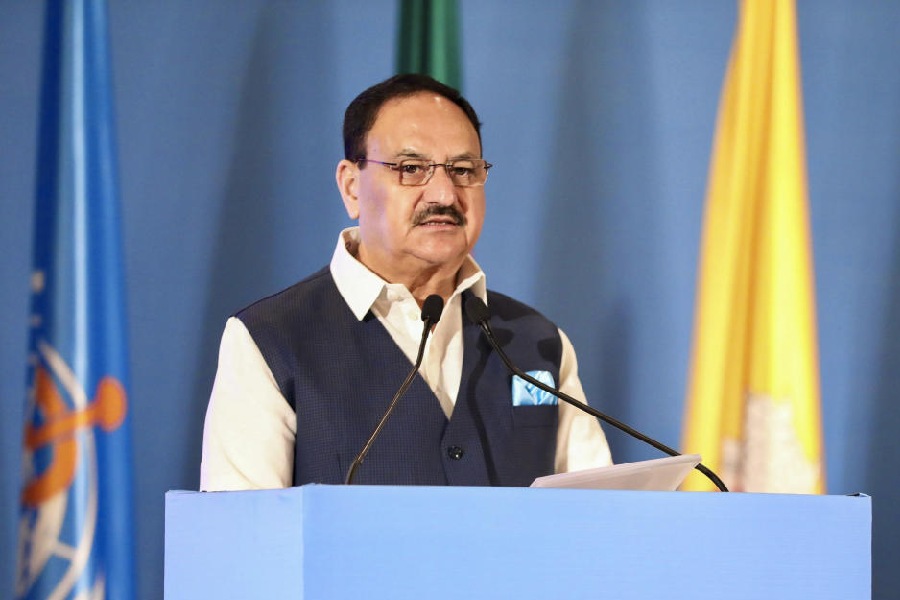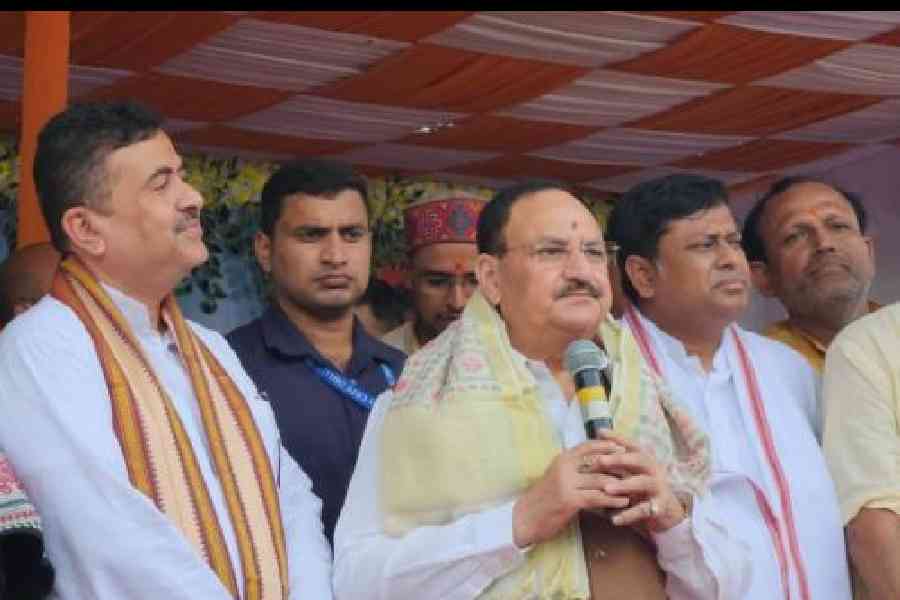Collaboration across borders, sectors and disciplines is essential for creating lasting health solutions, Union Health Minister J P Nadda said on Monday, underlining India's commitment to meeting the increasing demand for pharma products while adhering to global quality standards.
Nadda, who inaugurated the 19th International Conference of Drug Regulatory Authorities organised by the Central Drugs Standard Control Organisation (CDSCO), said the platform brings together experts and leaders from over 120 countries and reflects India's shared commitment for enhancing global healthcare standards and safeguarding public health.
Noting that India emerged not only as a global leader in health resilience and innovation but also reaffirmed its role as the pharmacy of the world during the COVID-19 pandemic, he said the country rapidly expanded its healthcare infrastructure and scaled its vaccine production to meet both domestic and global demands.
"The successful roll out of the COVID-19 vaccination programme covering over a billion people is a testament to the robustness of our healthcare system and the dedication of our healthcare workers and soundness of our policies," Nadda stated.
As the pharmacy of the world India played a crucial role in ensuring affordable access to essential medicines, vaccines and medical supplies for nations across the globe.
"Guided by the principle of 'Vasudhaiva Kutumbakam', we extend our support to more than 150 countries providing life saving drugs and vaccines during the pandemic.
This spirit of international solidarity is the heart of India's approach to global health," Nadda said.
"We believe that our progress is inseparable from the progress of the world and as such we remain committed to contributing to global health security and sustainability," he said.
The platform, he said, presents a unique opportunity to discuss how cooperation between nations can be enhanced to tackle emerging global health challenges.
The platform provides a space to share knowledge, foster partnership and develop regulatory frameworks to ensure safety, efficacy and quality of medical products worldwide, the minister underlined.
In India, the CDSCO is the national regulatory agency and has developed a robust system for approving safe and efficacious drugs and medical devices in the country and for export to more than 200 countries in the world.
"Availability of quality medicines at affordable price is at the core," he said.
Eight drug testing labs are operational today and two more are in the pipeline. Eight mini testing labs are operational at ports for a quick testing and release of drugs and raw materials being imported, Nadda said.
The Union Minister also stated that more than 95 per cent regulatory processes currently have been digitized at CDSCO, bringing transparency and increasing trust among stakeholders.
"Considering the importance of medical devices in health care delivery, medical device industry in India is also being regulated. Drugs rules have been amended to make good manufacturing practice guidelines more comprehensive and at par with the WHO-GMP guidelines," he said.
Nadda also pointed out that in order to make drug supply chain robust, it has been made mandatory to provide bar code or quick response code (QR Code) on top 300 brands of drug products.
Similarly, QR code is mandatory on all API packs, either being imported or manufactured in India.
India remains fully committed to advancing global health, Nadda emphasised.
"We believe in skill, speed and scale and by focusing on these three aspects we have been able to meet the increasing demand for pharma products while adhering to global or global quality standards without any compromise," Nadda stated.
India is prepared to address pressing challenges from the antimicrobial resistance to ensuring equitable access to life saving treatments.
"The theme of this conference resonates with our core belief that collaboration across borders, sectors and discipline is essential for creating lasting health solutions. India stands ready to work hand in hand with the international community to drive meaningful change and ensure better health outcomes," he stated.
Dr Tedros Adhanom Ghebreyesus, Director-General of WHO, who virtually joined the conference, commended India for hosting this crucial global regulatory forum and highlighted the importance of global cooperation in drug regulation, particularly in light of challenges such as antimicrobial resistance, the post-pandemic world, and the safe use of AI in healthcare.
Dr Saima Wazed, Regional Director, WHO Southeast Asia Region noted that India is the largest provider of generic medicines while the Indian Pharmaceutical Industry is the third largest in the world.
She emphasised that a strong regulatory system is crucial to achieving universal health coverage and highlighted the need for strengthened regulatory convergence and information sharing between national regulatory authorities.
The event is being hosted for the first time in India by the CDSCO, Ministry of Health and Family Welfare, in collaboration with the World Health Organization (WHO). The five-day conference brings together regulatory authorities, policymakers, and health officials from over 194 WHO member states.
Except for the headline, this story has not been edited by The Telegraph Online staff and has been published from a syndicated feed.












